Book Club Membership Form

Utilizing this comprehensive Book Club Membership Form presents numerous benefits, optimizing both the membership management and the user experience. By capturing essential personal information, communication preferences, and reading interests, the form streamlines the process of creating a tailored and engaging book club environment. The structured format, employing a mix of checkboxes, radio buttons, and text fields, minimizes the time and effort required to complete the form, thereby reducing user friction. It ensures that members receive relevant updates through their preferred communication channels and participate in activities that align with their interests. Additionally, by integrating consent for the code of conduct and privacy policy, the form fosters a respectful and secure community. Overall, this form enhances organizational efficiency, enables personalized member engagement, and reinforces a positive, inclusive atmosphere within the book club. Filling out the form not only marks the beginning of an enriching literary journey but also contributes to the overall quality and cohesion of the book club.
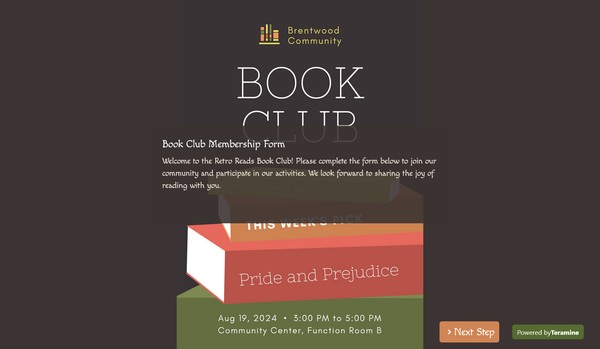
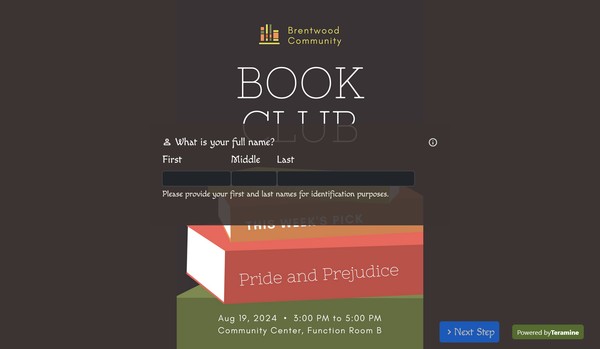
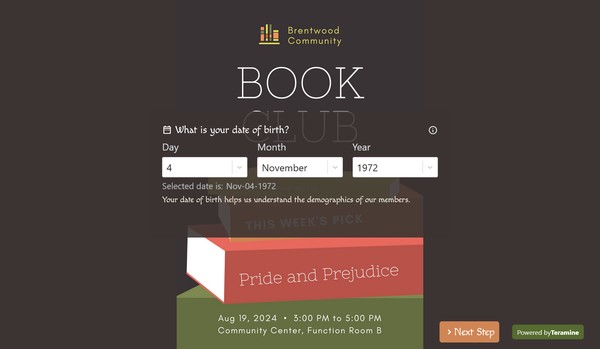
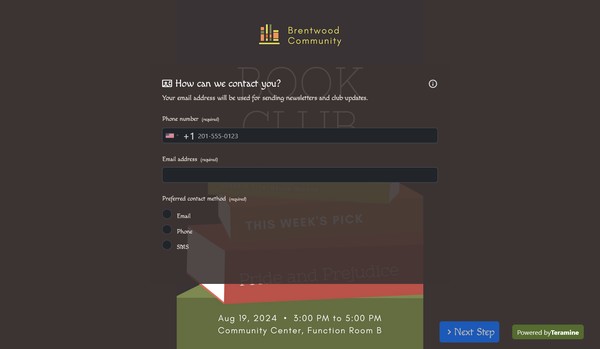
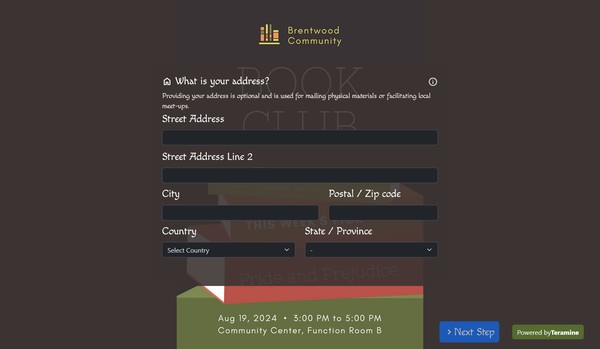
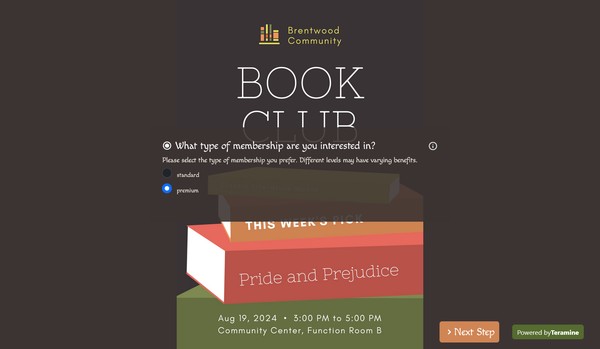
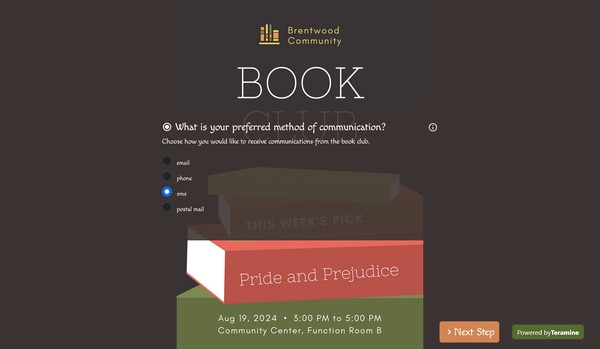
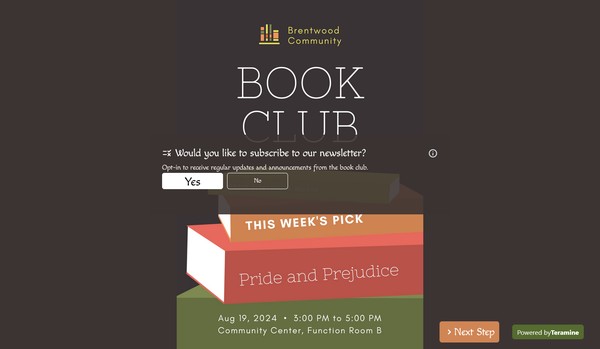
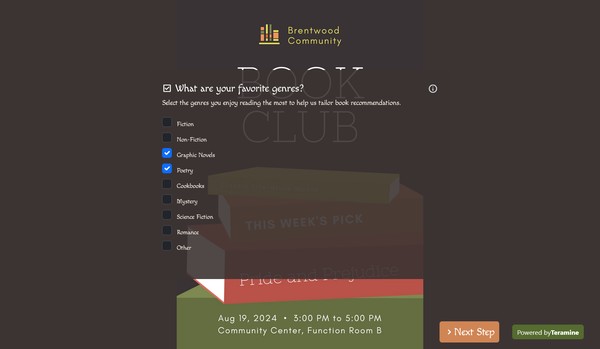
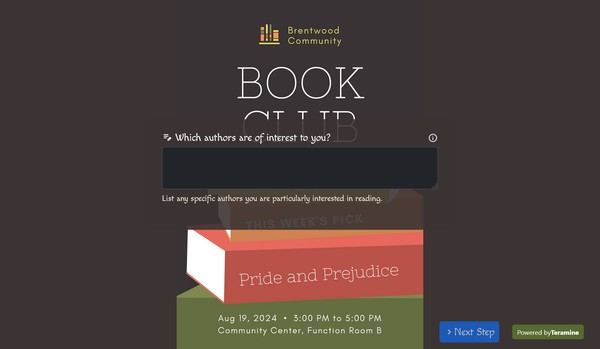
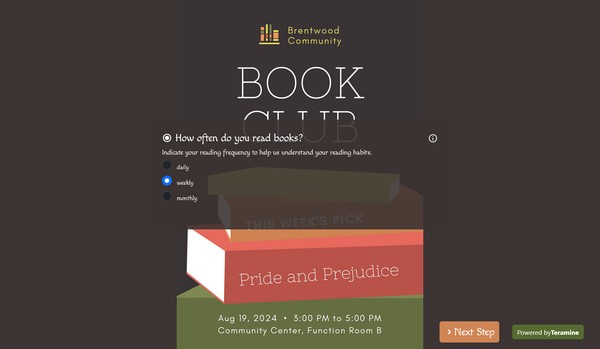
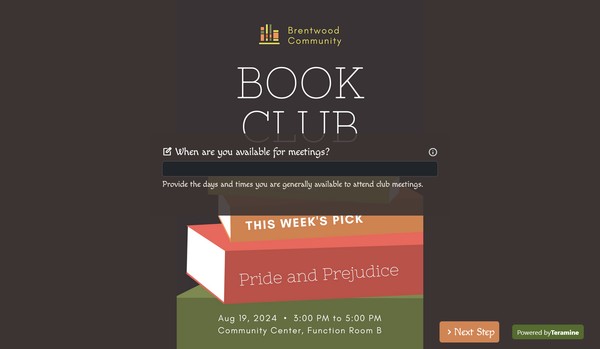
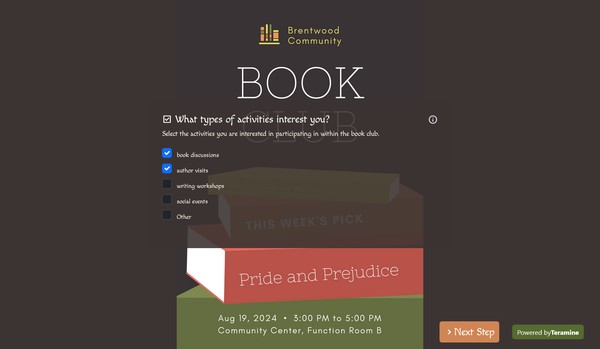
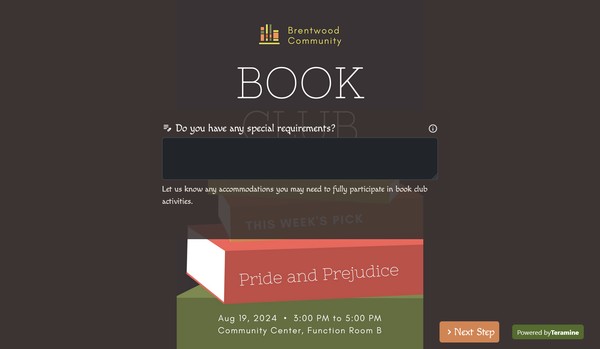
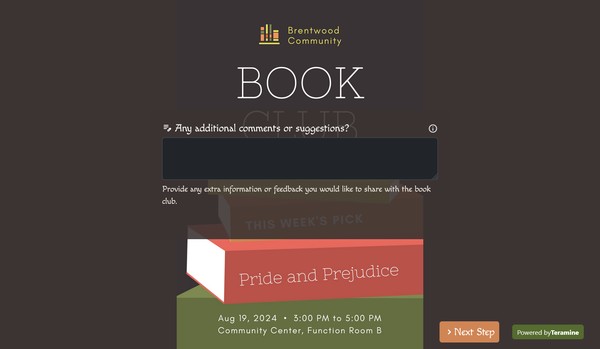
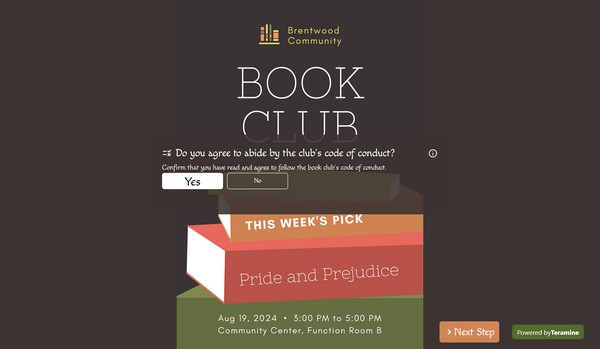
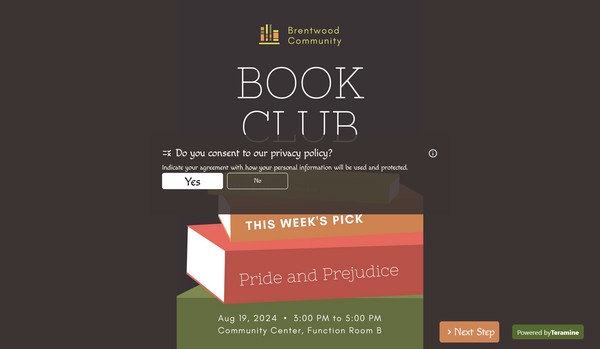

Book Club Membership Form FAQs
A Book Club Membership Form is a document used to formally enroll individuals in a book club. This form typically collects essential information about prospective members, such as their name, contact details, reading preferences, and availability. Additionally, it may include terms and conditions of membership, such as expectations for participation, guidelines for book selection, and any associated fees.
The purpose of the form is to streamline the registration process, foster organization within the club, and enhance communication among members. By capturing relevant information, the club can curate a reading list that aligns with the interests of its members while facilitating a smooth schedule for discussions and meetings.
A Book Club Membership Form should be comprehensive yet concise, ensuring that all relevant information is captured while making it easy for potential members to complete. Below are the key components that should be included in such a form:
Contact Information
- Full Name
- Email Address
- Phone Number
- Mailing Address (optional)
Membership Type
- Individual Membership
- Family Membership
- Student Membership
- Other (with a space for specifics)
Preferred Communication Method
- Phone
- Text Message
Reading Preferences
- Favorite Genres (e.g., Fiction, Non-Fiction, Mystery, Science Fiction, etc.)
- Preferred Book Formats (e.g., Physical Books, E-books, Audiobooks)
Availability
- Preferred Meeting Days/Times (e.g., Weekdays, Weekends, Evenings)
- Frequency of Meetings (e.g., Weekly, Bi-weekly, Monthly)
Membership Fees
- Acknowledgment of any membership fees, including payment methods and terms.
Participation Agreement
- A brief outline of member expectations (e.g., attendance, discussion participation, respect for different opinions).
- Space for signature indicating agreement.
Volunteer Opportunities
- Interest in volunteering for planning events, leading discussions, or other roles.
Miscellaneous
- How did you hear about our book club?
- Any additional comments or questions.
Privacy Policy Acknowledgment
- A statement regarding the handling of personal information and consent to share information within the group.
By incorporating these elements, the Book Club Membership Form can facilitate streamlined enrollment while fostering a welcoming environment for new members.
Utilizing a Book Club Membership Form offers several distinct advantages that streamline the organization and management of your book club. Here are key reasons to consider:
Structured Registration Process: A membership form provides a standardized way to gather important information from prospective members, such as contact details, reading preferences, and availability. This structured approach enhances the efficiency of your onboarding process.
Enhanced Communication: By collecting pertinent member information, including email addresses and phone numbers, you can maintain clear lines of communication for club announcements, meeting reminders, and event planning.
Tailored Programming: Understanding members’ reading preferences allows you to select books that align with their interests, leading to higher engagement and satisfaction within the group.
Member Tracking: A formal membership form aids in keeping track of active members, their participation levels, and attendance, which can be valuable for future planning and analysis.
Community Building: When members fill out a form, they may share their interests and backgrounds, fostering connections and discussions beyond just the books, thereby enhancing the communal aspect of the club.
Promotion of Accountability: Having a formal membership agreement can encourage members to commit to reading selections and participating regularly, leading to a more engaged and responsible group dynamic.
Future Growth: As your book club expands, a membership form allows for easier integration of new members, ensuring a smooth onboarding experience that maintains the club's integrity and culture.
In conclusion, a Book Club Membership Form serves not only as an administrative tool but also as a foundation for building a thriving book community. Implementing this form can contribute to the overall success and sustainability of your book club.
















